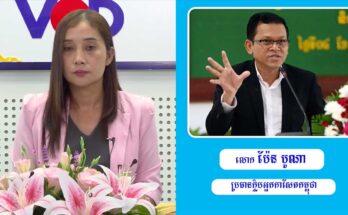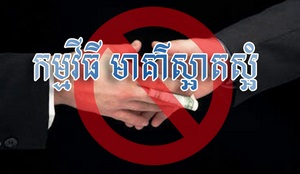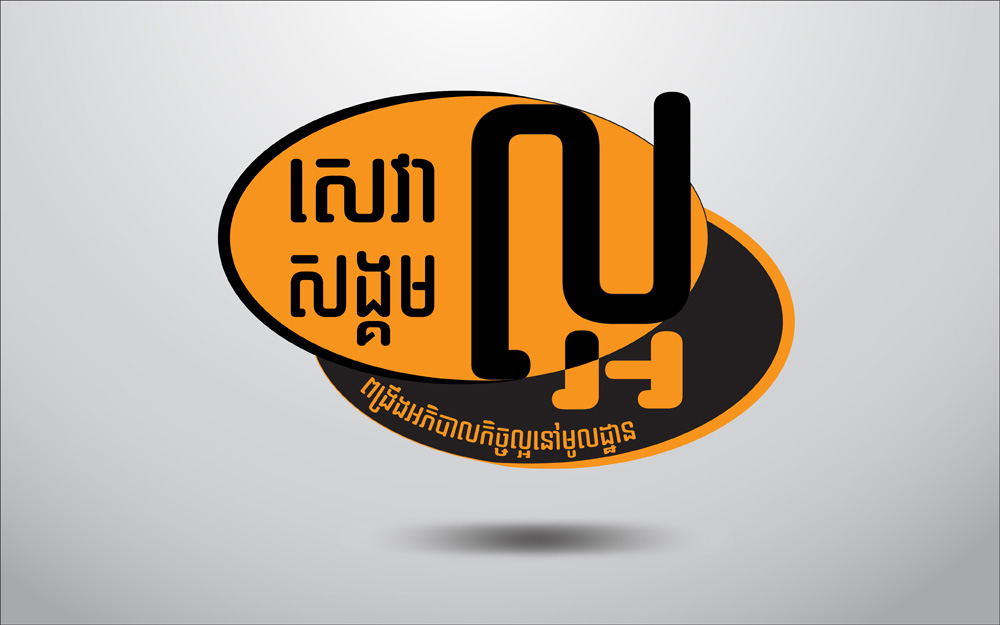It was 9 o’clock on a sunny and windy morning in February. The campus of Cheap Sim Boeung Keng Kang High School was noisy and full of students taking a break after two hours of learning. Some students chased one another, while some others chatted and enjoyed their snacks. And just across the road from the school, the Cambodia Center for Independent Media (CCIM) began broadcasting the Let’s Go Show, a one-hour radio program aired from 9:00-10:00 AM Monday to Friday on Radio Sarika FM 106.5 MHz focusing on youth participation in politics and good governance.
Participating in politics such as monitoring elections and challenging corruption issues are generally viewed as dangerous jobs in Cambodia, but this perception is being challenged by Cambodia’s youth. Miss Seng Hong, a graduate of two degrees in law and English literature from Royal University of Law and Economics and Norton University in 2011 and 2015, respectively, who was one of the guest speakers the radio show, argued that the notion that politics is only for politicians is misleading. Referring to a famous political theory coined by Aristotle in 4th century BC that “man is a political animal”, Hong is strongly convinced that politics is for everybody and whatever happens in politics will certainly affect everybody in society.
Hong believes that while politics is dangerous, today youth has the duty to think about the future. “Even though I am worried about my own security, I believe it is extremely important that youths think not only about their generation, but also the next generation,” Hong contended. Hong explained this further saying that “we are all afraid, but one thing we should all bear in mind is that the more we are afraid, the worse society becomes, and we will end up being the victims.” Thinking about only our own generation, according to Hong, is dangerously selfish and unacceptable.
Youths are energetic, intelligent and creative and people aged 16 to 30 years account for almost 70 per cent of the total population in Cambodia. There has been an influx of young people moving to cities to study and look for jobs. Thus, the influence and roles of youth in politics, good governance promotion and anti-corruption campaigns become even more critical. As Hong pointed out, common and personal interests motivate youth participation in these areas. Cambodian youths are eager to take part in developing their communities. They are tired of slow progress and curious to see changes happen. In terms of personal interests, they strongly believe getting involved in social activities is their window of opportunity to build their capacity in leadership skills and social reputation for their future career path. Therefore, it is undeniable that youth is a driving force of development in Cambodia.
In short, the notion that politics is restricted only to politicians is out of date for Cambodian youth. To some Cambodian people politics might not be important in their daily lives, but whatever happens in politics will definitely affect their lives either directly or indirectly. Although people delegate their power to politicians to serve as their representatives through elections, it does not necessarily mean that politicians are entitled to do whatever they wish without consent of the masses. Instead, the people need to monitor how well their leaders exercise their given power for the sake of common interests. This is one of the most practical methods the masses can use to hold leaders responsible and is a core value of CCIM’s “Let’s Go Show”. (Sek Sophal)




